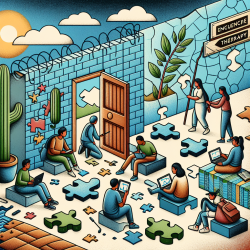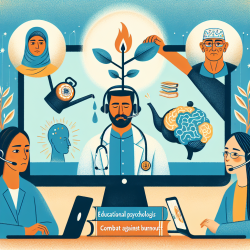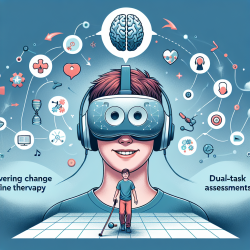Childhood narratives and lived experiences of Hispanic and Latinx college students with uncertain immigration statuses present a unique set of challenges. This research underscores the profound impact of ambiguous loss, structural barriers, and emotional trauma on these students' mental health and educational success. For practitioners at TinyEYE, understanding these findings can enhance the effectiveness of online therapy services provided to schools.
Understanding Ambiguous Loss
Ambiguous loss, a term coined by Dr. Pauline Boss, refers to the grief experienced in situations where there is no closure. For Hispanic and Latinx students with uncertain immigration statuses, this manifests in the constant fear of deportation and family separation. Recognizing and addressing ambiguous loss in therapy can help students process their emotions and develop healthier coping mechanisms.
Addressing Structural Barriers
The research highlights several structural barriers that impede educational success, such as limited access to scholarships and higher education opportunities. Practitioners should advocate for equitable educational resources and support systems. Online therapy can provide a platform for students to voice their concerns and seek guidance in navigating these barriers.
Fostering Resilience
Resilience is the ability to rebound from adversity. The study identifies key protective factors that contribute to resilience, including community support and effective guidance counseling. Practitioners can foster resilience by:
- Encouraging students to build supportive relationships within their community.
- Providing resources and information about scholarships and educational opportunities.
- Offering a safe space for students to discuss their fears and anxieties.
Promoting Mental Health
The mental health of students with uncertain immigration statuses is often compromised by stress and anxiety. Practitioners should:
- Incorporate trauma-informed care into their practice.
- Use culturally sensitive approaches to address the unique experiences of Hispanic and Latinx students.
- Encourage students to seek professional mental health support when needed.
Encouraging Further Research
While this study provides valuable insights, there is a need for further research to explore the long-term effects of ambiguous loss and structural barriers on students' mental health and educational outcomes. Practitioners should stay informed about ongoing research and integrate new findings into their practice.
Conclusion
Understanding the lived experiences of Hispanic and Latinx students with uncertain immigration statuses is crucial for providing effective online therapy. By addressing ambiguous loss, advocating for equitable resources, fostering resilience, and promoting mental health, practitioners can make a significant impact on these students' lives.To read the original research paper, please follow this link:
Childhood narratives and the lived experiences of Hispanic and Latinx college students with uncertain immigration statuses in North Carolina.










